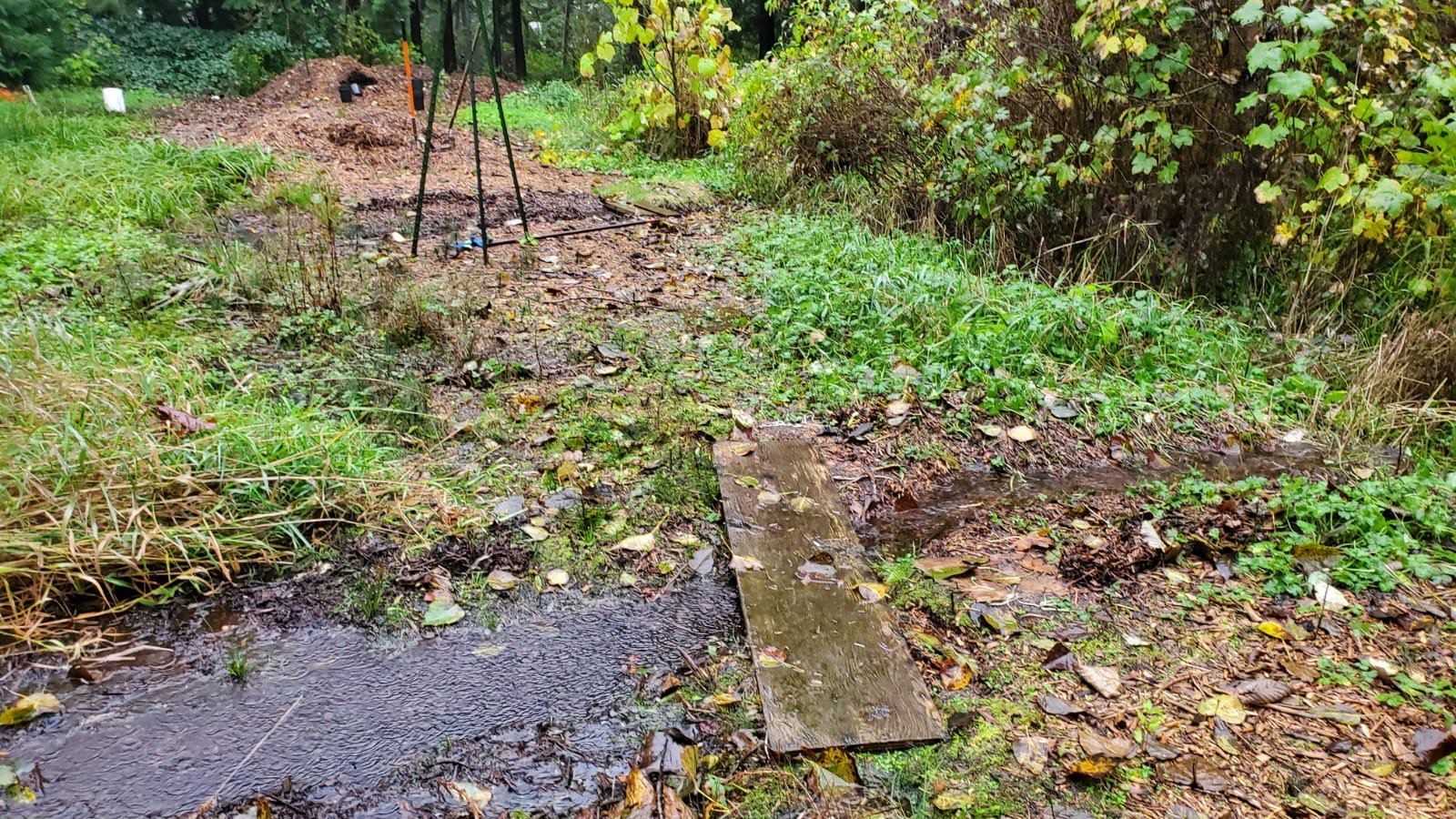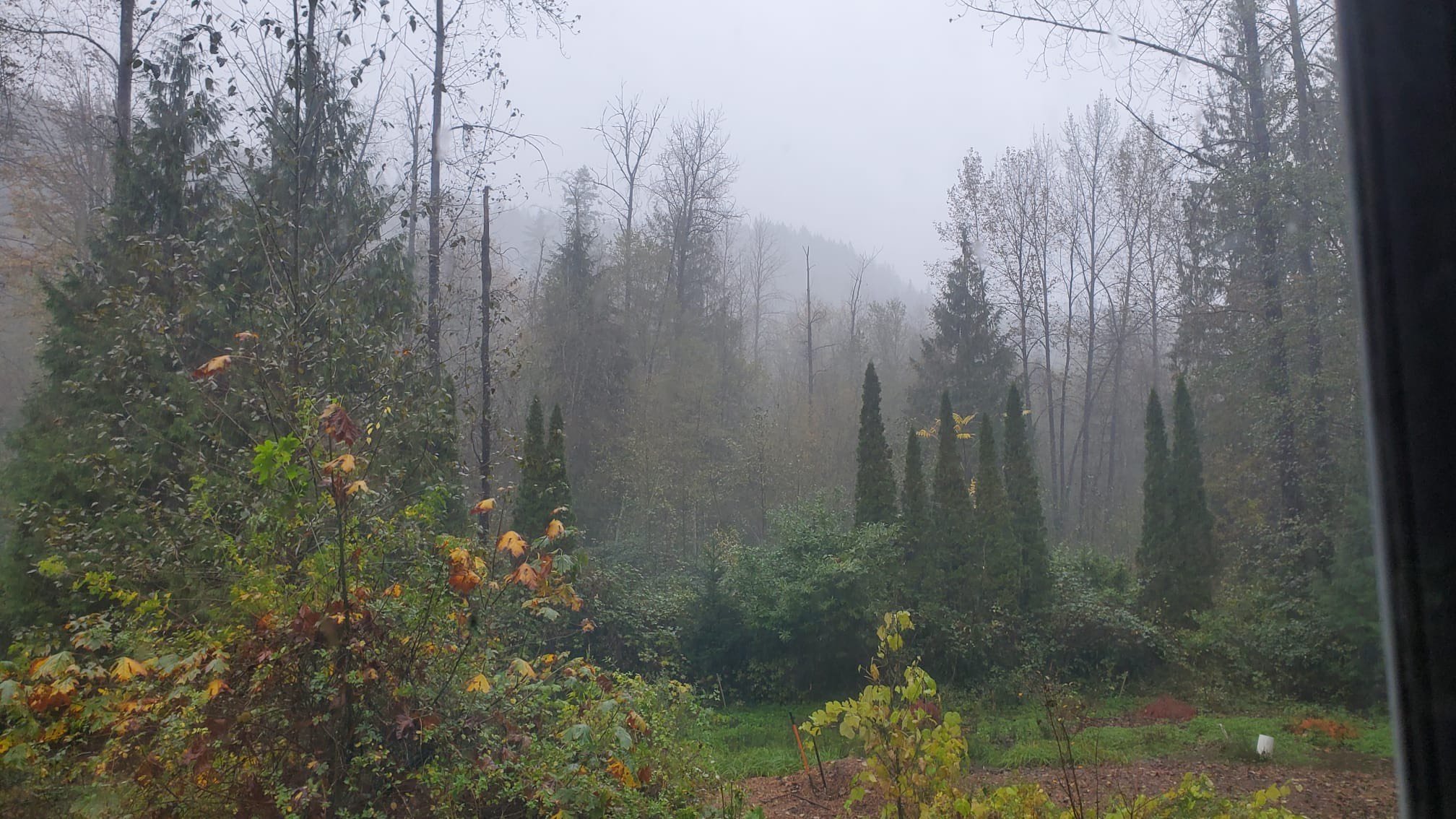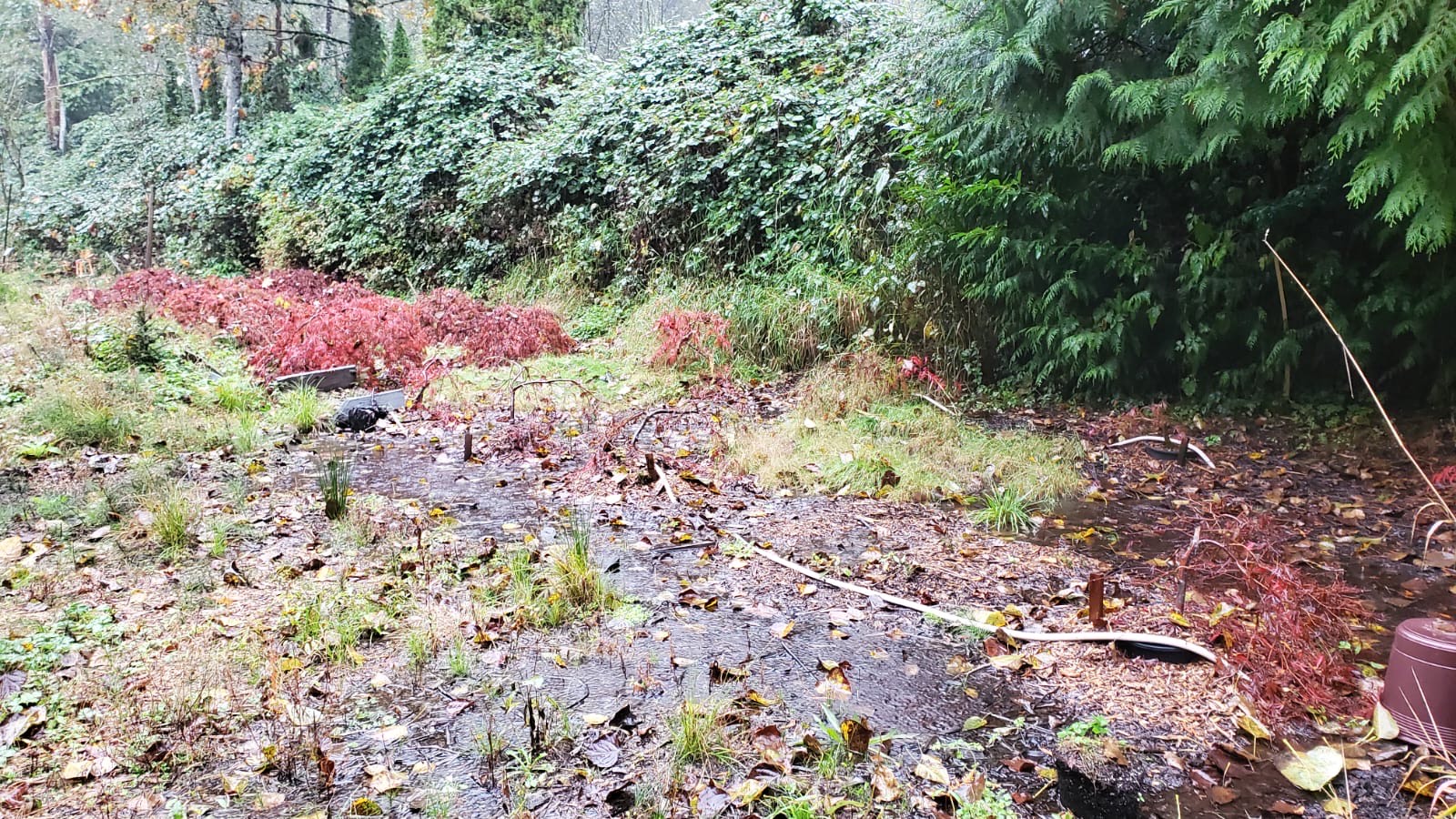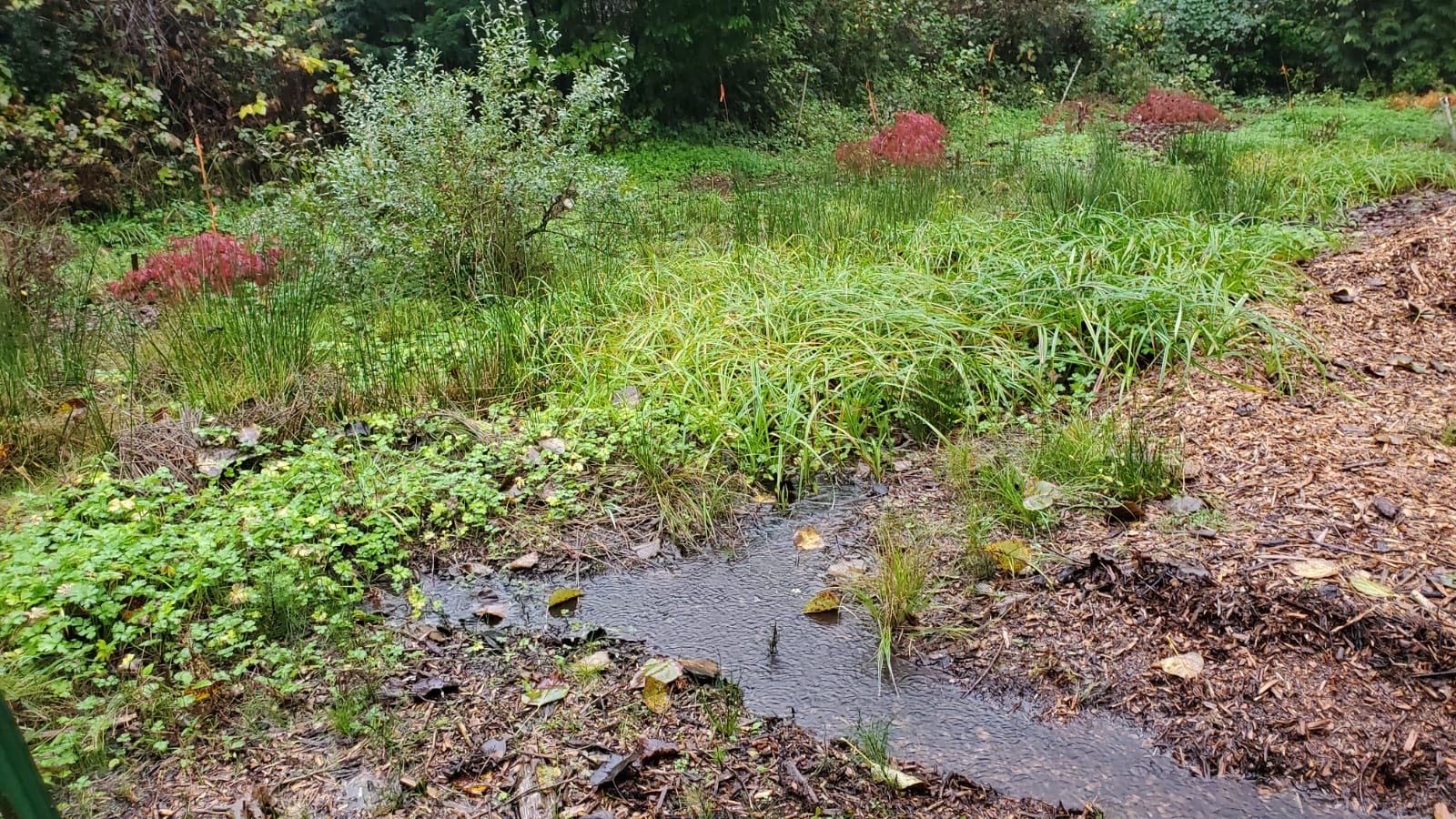Weather Alert: Atmospheric River Batters Coquitlam, BC, Canada

Published 21 OCT, 2024
On Saturday, October 19, 2024, an atmospheric river hammered my Pacific West Coast community, Coquitlam, British Columbia.
What is an atmospheric river?
Well, according to Wikipedia, an atmospheric river occurs when a warm band of water vapour collects in the atmosphere of the tropics (like Hawaii) and travels a great distance through the jet stream.
When warm, moist air meets cooler air surrounding a land mass like British Columbia (BC), the water condenses and falls as heavy rain.
Climatologists speculate more intense and frequent storms to occur due to climate change.

The atmospheric river slammed Coquitlam, causing over 320 mm (or over 13 inches) of rainwater to fall in a 48-hour period.
Coquitlam is my home and is the inspiration behind my debut children's picture book called Becki and the Trailer Kids.
Creeks roared and overflowed their banks and culverts; diverted creeks in new housing developments tried to find their original water routes, which caused intense flooding; and roads became rivers full of water and debris.
In one instance, a mudslide demolished a house and may have cost a woman her life.
For my family, drainage became a huge issue. Part of our basement flooded, and there was outdoor flooding in our Japanese Lace-Leaf Maple Tree nursery.
My husband, son, and I worked for hours to improve the drainage, which eventually decreased the flooding in our home. It was an intense experience!
Many people were without power for at least 24-hours.
Our gasoline generator had enough fresh fuel to run during the power outage. “Genny,” as we lovingly call her, kept our fridge and freezers going, some lights on, and the furnace running.
Lucky for us, our llama stayed in our neighbor’s barn, on higher ground, where
flooding wasn’t an issue.
I’m sure he and his sheep buddies were terrified because of the pounding rain on the roof, and the roar of the creek behind the barn.


What did I learn from this climate event?
- A generator is a must if you live in a rural area!
- Maintain your generator and have enough fresh fuel on hand to operate it for at least 48 hours.
Note: Your generator may not run on old fuel. - Keep flashlights current with fresh batteries.
- Have enough food for at least 48 hours.
- Garden tools like shovels, rakes, clippers are necessary to remove plant debris.
- An augur to clear drain tiles is a must!
- Coiled towels worked well in our basement to prevent water from traveling into dry areas. However, when the towels became saturated, they were pulled away from the drywall to prevent water wicking.
- Outdoor waterproof gear should be on hand and ready to wear. This includes boots, socks, jackets/hoods, pants, sweaters, and gloves. A fresh set of outdoor clothing is an excellent idea for day two because it empowers you to work outside.
- If you can, check on your neighbours and see if they need help.
- Listen to police and other authorities who may require you to shelter in place.

Join Nancy's email list and get a free activity booklet that's fun for the whole family!
Thank you for subscribing!
Have a great day!
